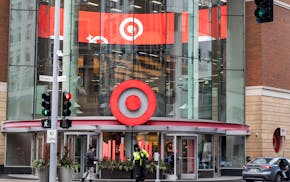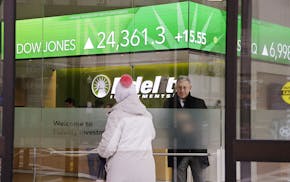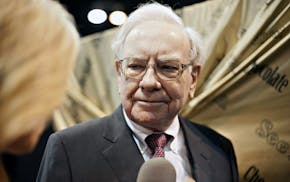As the markets fall, it is natural to have a visceral reaction to your investment losses.
If you have been invested appropriately, this market volatility shouldn't pose a threat to your ability to have the money you want to have when you want to have it. But with any perceived threat to our financial security, it is natural to adopt our protective measures: fight, flight, freeze or fawn.
So depending on your profile, let's look at each of these and, if you have to do something, figure out what's the least you can do.
If you are a fighter when the threat comes, you are going to want to be aggressive and view this as a time to go all in. If you are sitting on cash, you are going to want to dump it into the markets. If you are a really long-term investor, this might work.
But instead of dumping money into the markets, think about dolloping. Divide what you want to invest by five and either invest a set amount each month or any time the market drops by a certain percent. This means if we are at a bottom, you'll have money working gradually for you; if we aren't, you will continue to buy at lower prices. You don't have to back off from a fight, just adjust the number of rounds.
If you are prone to flight, you always have to get two decisions right: when to get out and when to get in. And depending on where you've invested your money, getting out might cause tax issues or withdrawal fees.
One of our clients was close to retirement and was very anxious about the market. He took half his money in his 401(k) and put it into cash. He knew from our planning that he was going to be fine, but uncertainty triggered his flight response. When he told us what he did, rather than encourage him to reverse it, we suggested he dollop the cash back in. If you lean toward flight, don't think about the most you can take out of investments to be comfortable, think about the least you can take out.
Freezing when things feel out of control probably means that your investment statements get deleted the second they hit your inbox. Freezing isn't the worst thing, since it allows you to stick to the plan you made when you felt more grounded. But freezing also means that you aren't rebalancing nor adding extra money if you have it.
If you are frozen, at least open an online savings account to get higher yields than the banks pay or send in a little extra money on your mortgage payment or other outstanding debt.
Fawning is when you react by trying to please someone else. During these times, we want experts who know what is going to happen. But we don't have that. You have the ultimate agency over your money. If your advisor is telling you to do something you don't feel comfortable with, don't automatically do it.
A good advisory relationship involves give and take. While a seasoned advisor has been through various types of markets, they probably don't have the same profile as you. Ultimately, you are paying for advice, and you want to trust the advisor with whom you are working. Have them continue to provide explanations until you feel comfortable. While the next 60 days are unclear, the next 60 months might be more predictable. But it is always your money at work.
We will have continued volatility as the trade wars ebb and flow. And regardless of whether you think tariffs are ultimately going to be good or bad, there are some likely outcomes.
At least for the near-term, costs are going to go up. Producing in countries that cost the least to produce lowers costs. If tariffs are placed on parts or goods, then prices rise. This means there is less money to spend on other things.
Another likely outcome is the tariff decision today will change tomorrow. This might come from negotiation or capitulation, but things won't stay the same. Don't deny your reactions to this but don't overdo them.
Ross Levin is the founder of Accredited Investors Wealth Management in Edina. He can be reached at ross@accredited.com.

Ramstad: Minnesota's big businesses are in crisis with a common problem

'Brady Bunch'-style split-level homes enjoying a revival in Minnesota — with a twist

Now is the time to invest in bonds, with yields too good to ignore

Don't consider just your conflicts of interest. Be wary of your advisors', too
